In this Good Practice Note, Kailas Andhale, Santarpana Choudhury and Rajashree Joshi discuss how imparting valuable skills in floriculture to tribal youth in the tribal taluka of Palghar District in Maharashtra sparked a flourishing floriculture enterprise that is providing sustainable livelihoods and self-employment opportunities to more than 8000 farmers.
CONTEXT
In India, the tribal communities are faced with an issue of multiple deprivation. They have limited opportunities for livelihoods in their own settings. Further, Indian agriculture is mostly rain fed in nature. Typical agriculture is faced with climatic risks, growing drudgery, less remuneration and market fluctuations. On account of this, many tribal youth adopt migration as a coping mechanism. Thus, despite of large number of youth, fewer are choosing agriculture as their livelihood activity and prefer to stay in villages.
Agriculture continues to be the mainstay of the Indian economy, with nearly 50% of the population dependent on the primary sector for their livelihood. However, lately, there has been a shift away from agriculture as the preferred source of livelihood, mostly among educated rural youth. This is due to limited efforts to diversify farming system, limited efforts for skilling and entrepreneurship, limited reach of latest advances and technologies in villages and limited efforts to demonstrate models on small plot, high value horticulture.
Ageing farmers and a waning interest of rural youth in agriculture is becoming a prime concern in India and this will remain unless some best practices and field evidences are evolved showing reverse migration of youth in villages and their engagement in agriculture. This also calls for concerted efforts to impart skills to youth to ensure sustainable and science-based agriculture and diversified farming system, resulting in higher yields and income.
BAIF’s ROLE IN SKILLING RURAL YOUTH
Assessing this need to impart the right skills to draw youth back to agriculture, BAIF Development Research Foundation (www.baif.org.in) sought to promote floriculture (Jasmine, Arabian Night variety from Bangalore) as a part of its ‘Small plot High-value Agriculture’ strategy in the tribal regions of Jawhar in Palghar, Maharashtra since 2005.
|
Box 1: About Jawhar |
The aim behind ‘Small plot High-Value Agriculture’ was to make smallholder parcels of land economically remunerative in a sustainable manner. It also aims to diversify farmers’ income sources, while enabling the utilization of their land beyond the Kharif season. During a preliminary needs assessment, it was found that jasmine was commonly grown for household use. Since the flower is highly sought after in and around the area, with the added advantage that it can be grown on small parcels of land and is easy to manage by small farmers, it was decided to promote jasmine floriculture in the area. Jasmine’s potential to generate income within a short span of six months adds to its appeal.
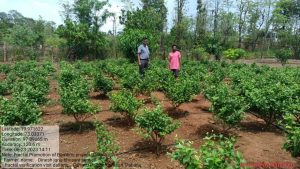 Jasmine Floriculture Model Plot
Jasmine Floriculture Model Plot
PROMOTING FLORICULTURE: GOOD PRACTICES
BAIF has been promoting intensive jasmine cultivation in small parcels of degraded wastelands belonging to small and marginal tribal farmers of the region since 2005.
Piloting the idea
Initially, only 30 farmers from three talukas — Vikramgad, Jawhar and Palghar — were willing to be a part of this initiative. Adopting a tukadi or group approach, farmers were provided technical inputs collectively. Demonstrations were conducted on farmers’ field. They were also provided with material support like good quality saplings, buds, organic fertilizers, etc. The technical team and farmers’ group organized monthly review meetings to monitor the growth of the plants and to take up timely aftercare activities.
This model of perennial floriculture with 200 jasmine plants on 500 m2 (0.05 ha) grown at a distance of 5 X 5 feet in poor quality land with limited irrigation has been perfected by these young tribal farmers under expert guidance. Currently floriculture is being practiced by more than 8454 farmers in the region.
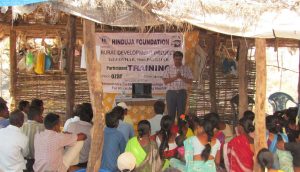 Training tribal farmers on flower cultivation
Training tribal farmers on flower cultivation
Mobilising flower cultivators
Producer Organisation
However, simply growing flowers on an industrial scale did not resolve their issues. In 2006, floriculturists of the region were brought together informally under the Vrindavan Pushpa Utpadak Sangha. This collective was formed and strengthened to provide marketing and other hand holding support to floriculturists. From 2006 to 2010, the BAIF team helped the Sangha in its day-to-day operations, ranging from record maintenance to bank deposits to paying producers. Each member contributes Rs. 5/kg of flower sold to the Sangha’s common fund. The money is used for purchasing agriculture inputs in bulk to grow flowers.
Producer Company
The Sangha was restructured as Vrindavan Pushpa Farmers Producer Company Ltd in 2017 with about 300 smallholder tribal farmers as members. This allowed the farmers to collectively sell their produce at wholesale prices in Dadar, Mumbai, markets, which are around 150 km from Jawhar. Flowers were collected from each and every field. Farmers could supply quantities as small as 100 grams. Every day, the farmers brought the flowers to the collection centres, where it was weighed and noted. Every day, the aggregated produce from each collection centre was sent to Dadar market in Mumbai through an established flower supply chain. The average price it was sold at is Rs. 220/ kg. Flowers worth Rs. 45 lakhs were sold in the year 2022-23 at Dadar,Mumbai Market.
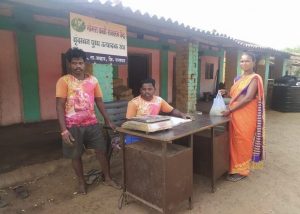 Jasmine Collection Center at Shiroshi village in Jawhar, Palghar District
Jasmine Collection Center at Shiroshi village in Jawhar, Palghar District
By aggregating their produce, FPO members were now able to leverage economies of scale and negotiated better prices in the market. This collective selling approach not only ensured them a steady income but also strengthened their market presence and bargaining power.
Establishing Backward and Forward Linkages
The FPO has also established strong backward and forward linkages for all the farmers. Through BAIF, it facilitates technical support to individual farmers in installing micro-irrigation systems, a highly efficient method of watering plants. This helps farmers optimize water usage, improve crop yields, and enhance overall productivity. Additionally, the FPO supports farmers by ensuring the availability of good-quality inputs such as fertilizers and pesticides at reasonable prices for a healthy and disease-free crop. Further, based on farmers’ needs, the FPO arranges for planting material of other flowers such as marigold, champa, desi rose, etc. FPO and BAIF also provides required facilitation support for convergence and leveraging of ongoing government schemes as implemented by the tribal department, agriculture department , local administration etc
 Transporting flowers daily to Dadar, Mumbai flower market
Transporting flowers daily to Dadar, Mumbai flower market
IMPACTS
The program has resulted in to several impacts.
- Today, an individual floriculture farmer is able to earn around Rs 40,000- Rs 50,000 per annum from producing and selling jasmine on 0.05 ha of land.
- The program has created a sustainable livelihood for 8454 tribal youth who are spread over six talukas.
- The program has enhanced family income, improved the quality of life of the tribal participants.
- Distress migration which was widely prevalent in this region has now been reduced.
- This floriculture model is currently accepted widely as small plot, high value horticulture model for tribal regions.
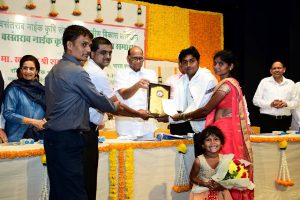 Mr.Mahesh Raghunath Dhoom, one of the successful farmers (with his family and FPC members) from Jawhar receiving the Vasantrao Naik Agricultural Award in the floriculture category in 2018.
Mr.Mahesh Raghunath Dhoom, one of the successful farmers (with his family and FPC members) from Jawhar receiving the Vasantrao Naik Agricultural Award in the floriculture category in 2018.
|
Box 2: Tracing Mahesh’s success in floriculture In 2008-09, Mahesh joined BAIF’s floriculture programme to grow flowering plants as an income generation activity. He adopted improved floriculture practices under the guidance of BAIF. He planted 200 Arabian Nights (locally referred to as Bangalori) variety of jasmine on 5 gunthas. The saplings were irrigated with head loads of water in the absence of an irrigation source nearby. The plants began bearing flowers six months post-plantation. The family earned an income of Rs. 60,000 from 200 plants per year. He added 100 more saplings in the next few years. In 2021-23, the family earned Rs. 58,000 from the sale of jasmine flowers alone. Mahesh also adopted drip irrigation in view of the limited source of water. He also uses organic manure for fertilizing the plants, which reduces the cost of cultivation and also improves the quality of the flowers. He is a member secretary of Vrindavan Pushpa FPC which helps in successful marketing the flowers. Mahesh’s success has motivated other tribal youth in the taluka to adopt floriculture to improve their family incomes, thereby avoiding migration. He has proved that with the right skills, even wastelands can bring in a sizeable income. |
This floriculture model with flowers like Jasmine, Mariglod and Rose is now adopted in various rural development Projects across the country by many government and non-government programs. This has also helped setting up of network of producer owned organisations in tribal parts of Palghar District of Maharashtra
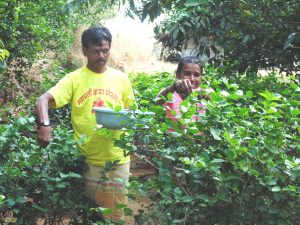 Sri Tulsiram Chaudhari and his mother plucking flowers from their field in Kalmvihira hamlet, Jawhar
Sri Tulsiram Chaudhari and his mother plucking flowers from their field in Kalmvihira hamlet, Jawhar
PARTNERSHIPS
Several partners have contributed to the success of this initiative. These include various departments of the Government of Maharashtra, National Bank for Agriculture and Rural Development (NABARD), Tata Trust, Mahindra and Mahindra, ASK Foundation, Panasonic Life Solution, and Hinduja Foundation.
LESSONS LEARNT
The program has given several new insights and policy relevant lessons:
- There is still untapped potential for land based livelihoods in the region which need to be harnessed.
- While promoting diversification of farming system and small plot high value horticulture, there is a need to blend strong technical inputs from Science & Technology with on ground support.
- Skilling and entrepreneurship development of youth and women should be the central focus for developing livelihoods especially in the tribal regions of the country.
- Mobilising farmers as collectives and nurturing them to emerge as producer organisation and/or producer company can help farmers gain several benefits from the economies of scale.
- Assessing market demand, developing backward and forward linkages and demystifying new technologies through appropriate capacity development efforts are critical for promoting diversified and sustainable livelihoods.
- Economic wellbeing with ecosystem wellbeing can go hand in hand, if interventions are planned accordingly.
 Mr. Kailas Andhale, Associate Thematic Programme Executive, BAIF Development Research Foundation. He can be reached via email: Kailas.andhale@baif.org.in
Mr. Kailas Andhale, Associate Thematic Programme Executive, BAIF Development Research Foundation. He can be reached via email: Kailas.andhale@baif.org.in
 Ms. Santarpana Choudhury. Associate Programme Manager, BAIF Development Research Foundation. She can be reached via email: Santarpana.choudhury@baif.org.in
Ms. Santarpana Choudhury. Associate Programme Manager, BAIF Development Research Foundation. She can be reached via email: Santarpana.choudhury@baif.org.in
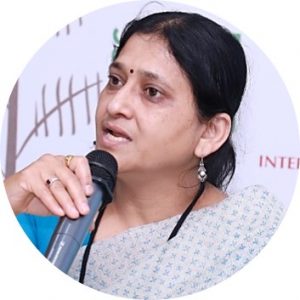 Dr. Rajashree Joshi, Programme Director, BAIF Development Research Foundation She can be reached via email: rajeshreejoshi@baif.org.in
Dr. Rajashree Joshi, Programme Director, BAIF Development Research Foundation She can be reached via email: rajeshreejoshi@baif.org.in

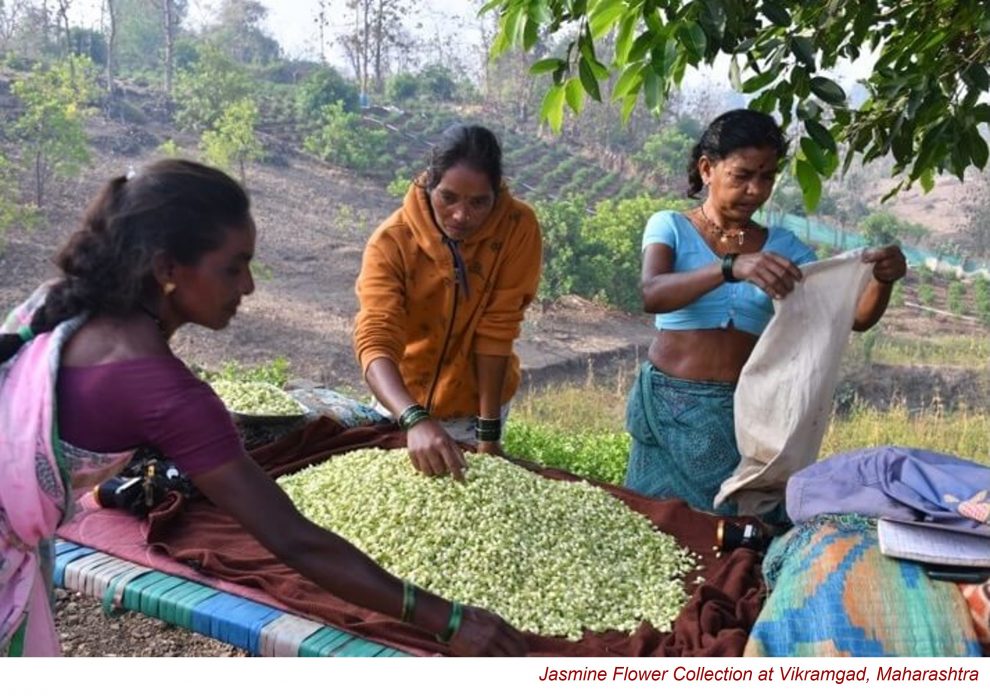

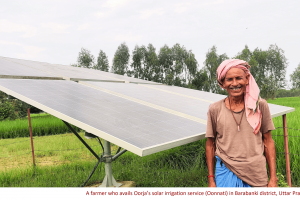
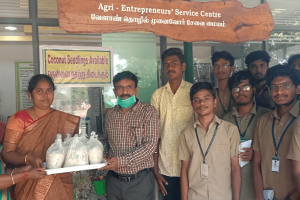
Add Comment